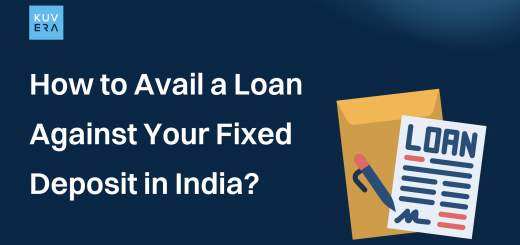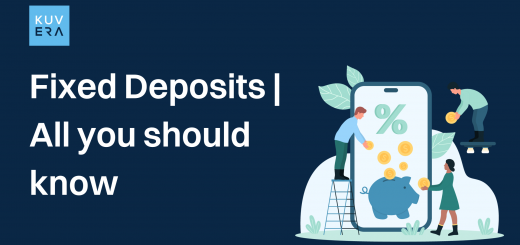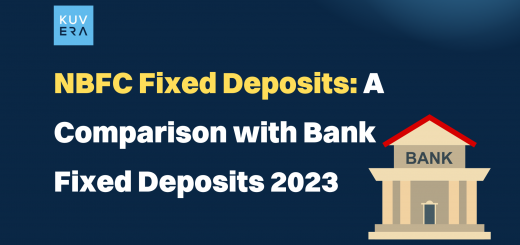Today we are going to discuss all about Bajaj Finance FD interest rates 2023, we will also understand all about the benefits of FD as well as the unique features offered by Bajaj Finance FD.
Fixed Deposits
Fixed Deposit or FD is a type of bank account where you deposit a certain amount of money for a set period of time, usually ranging from a few months to several years. The bank pays you a fixed interest rate on your deposit during this time. Once the term (or “tenure”) of the fixed deposit is over, you can withdraw the original amount you deposited along with the interest earned.
Fixed deposits are considered relatively safe because they offer a fixed return on your investment, and the money is typically locked in for the agreed-upon term, which means you cannot withdraw it before the tenure ends without incurring penalties.
Fixed deposit accounts are provided by the majority of the country’s main banks, with terms ranging from as short as 7 days to as long as 10 years or more. Customers can select a period that best suits their needs. The interest rate, once set, does not change throughout the period, and upon maturity, the person will get a lump sum amount that covers both the regular investments and the interest gained.
Bajaj Finance Fixed Deposits
Bajaj Finance is a leading non-banking financial company (NBFC) in India. It is renowned for its extensive portfolio of financial products tailored to cater to diverse needs, from retail loans for consumer durables, personal loans, and home loans to investment options like fixed deposits.
Here are some of the features of Bajaj Finance FDs that might make it the right choice for you.
Features of Bajaj Finance Deposit
Some of the features of Bajaj Finance FD are as follows:
1. Tenure Flexibility:
Bajaj Finance FDs offer flexible tenure options, ranging from 12 months to 60 months. Investors can choose a tenure that suits their financial goals, whether short-term or long-term, ensuring they get the desired returns on their investments.
2. Minimum Deposit Amount:
Bajaj Finance allows investors to start with a minimum deposit of just Rs. 25,000, making it accessible to a wide range of individuals seeking to grow their savings securely.
3. Premature Withdrawal Facility:
Bajaj Finance understands that financial needs may arise unexpectedly. Hence, it offers a premature withdrawal facility, allowing investors to access their funds in times of urgency, subject to terms and conditions.
4. Nomination Facility:
To ensure a smooth transfer of funds to nominees in case of unforeseen circumstances, Bajaj Finance provides a nomination facility. Investors can nominate individuals who will receive the FD proceeds in their absence.
5. Senior Citizen Benefits:
Recognizing the value of senior citizens, Bajaj Finance offers an additional interest rate boost for investors aged 60 years and above. This special benefit ensures a steady income for retirees during their golden years.
6. Tax Deducted at Source (TDS):
As per tax regulations, TDS is applicable on the interest earned from FDs. However, Bajaj Finance provides the option of availing a tax exemption by submitting Form 15G/15H if the investor’s income is below the taxable limit.
7. Loan against FD:
Bajaj Finance FDs come with a unique advantage of liquidity. Investors can avail loans against their FDs without breaking the deposit, providing access to funds during emergencies, or for meeting urgent financial requirements.
Bajaj Finance FD Interest Rates 2023 (Below Rs. 5 Crore)
Here’s what the Bajaj Finance FD interest rates look like for the general public and senior citizens.
| Tenure | Interest rate p.a | Interest rate for senior citizens p.a |
| (12-14) months | 7.40% | 7.60% |
| 15 months | 7.45% | 7.70% |
| (>15 – 23) months | 7.50% | 7.75% |
| 18 months | 7.40% | 7.65% |
| 22 months | 7.50% | 7.75% |
| 24 months | 7.55% | 7.80% |
| (25-35) months | 7.35% | 7.60% |
| 30 months | 7.45% | 7.70% |
| 33 months | 7.75% | 8.00% |
| 44 months | 8.35% | 8.60% |
| (36-60) months | 8.05% | 8.30% |
Specialise interest rates are applicable on tenure of 15, 18, 22, 30, 33, 44 months.
Rates are as on w.e.f. 27.07.2023
Did you know NBFC fixed deposits are offering up to a 9. 15% interest rate? Click here to explore rates.
Benefits of a Fixed Deposit Account
Some of the major advantages of a fixed deposit account are as follows:
Guaranteed Returns: FDs provide fixed and guaranteed returns in the form of interest rates, which are predetermined at the time of investment. This allows investors to know in advance how much interest they will earn on their deposit, making it a predictable investment option.
Capital Preservation: FDs are considered relatively low-risk investments as the principal amount deposited is generally safe and secure, and is not subject to market fluctuations. This makes FDs suitable for conservative investors who prioritize capital preservation.
Flexibility: FDs offer flexibility in terms of tenure, allowing investors to choose a term that suits their financial goals, ranging from short-term to long-term. This makes FDs adaptable to different investment objectives and time horizons.
Regular Income: FDs can provide a regular source of income, especially when interest is paid out at regular intervals (monthly, quarterly, etc.), making it beneficial for individuals seeking regular income, such as retirees or those with fixed financial commitments.
Diversification: FDs can be used as a part of a diversified investment portfolio to balance risk and returns. They can complement other types of investments, such as stocks, mutual funds, or real estate, to create a diversified investment portfolio.
Loan Facility: Many banks allow customers to avail loans against their fixed deposits, providing a convenient source of credit without breaking the deposit prematurely. This can be beneficial in times of emergencies or unexpected expenses.
Nomination Facility: FDs often allow customers to nominate a beneficiary, which can help in a smooth transfer of the deposit to the nominee in case of unforeseen events, ensuring that the depositor’s wishes are honored.
Senior Citizen Benefits: Some banks offer higher interest rates for senior citizens on fixed deposits, providing an additional benefit to individuals above a certain age.
It’s important to note that the specific benefits of fixed deposits may vary depending on the terms and conditions of the particular FD and the prevailing market conditions. It’s advisable to carefully review the terms and conditions, interest rates, and other features offered by the bank or financial institution before investing in a fixed deposit.
FD Calculator
Fixed Deposits (FD) are a savings option that helps one save for the future. Like with any other type of savings account, the interest rate on FDs varies from bank to bank. For various time periods, interest rates in Indian banks usually range between 6 – 9%. The interest rate for a senior citizen’s FD account is slightly higher than the regular accounts. Most banks give senior citizens an additional rate of between 0.25% and 0.75%.
To compare various FDs based on their interest rates, you can easily use the online FD interest and returns calculator.
Advantages of using an Online Fixed Deposits Interest Calculator
The process of calculating interest on repeated deposits can be difficult and time-consuming. Some of the benefits of using an FD online calculator are as follows:
- Simple to use: Utilizing an FD calculator is quite simple. All that is required is the entry of values for the monthly deposit, the rate of return on investment, and the number of years of investing. The maturity amount is correctly calculated by the FD calculator, you can do the same for RDs through the RD Calculator.
- Time-saving: An investor can save time by using an FD calculator. In a matter of seconds, it completes complicated calculations. The investor no longer has to deal with the hassle of manual computations.
- Accuracy: If the inputs are entered correctly, the calculator is extremely accurate and there is no chance of error.
- Future Planning: The calculator provides the precise value of the return on investment, allowing investors to plan their future with extreme precision.
- Comparison: FDs are provided by banks and financial institutions. Investors can quickly compare the maturity values of several FDs using an FD calculator.
- Free to use: The RF calculator can be used numerous times by the investor for free to estimate the returns from FDs with different terms and interest rates.
Conclusion
Fixed Deposit (FD) is India’s favorite investment option because it is one of the low-risk investment instruments with moderate and assured returns. Along with many other advantages, it offers users the ability to choose their investment amount and tenure. For the duration of the FD, interest is calculated at a fixed rate. The interest computation will be done at this rate regardless of fluctuating market trends or changes in the bank’s rules regarding the interest rate offered. As a result, investors don’t need to be concerned about market volatility. It also offers enough return to combat inflation and ensure that the value of your money is not diminishing.
Frequently Asked Questions (FAQs)
1. What are post office FDs? How are they different from bank FDs?
Post office fixed deposits (FDs) are similar to bank FDs, but with some key differences:
- Issuer: Post office FDs are issued by the Indian Postal System, while bank FDs are issued by commercial banks.
- Tenure: Post office FDs have fixed tenures of 1, 2, 3, or 5 years, while bank FDs offer more flexibility in terms of tenure.
- Interest Rates: Post office FDs have government-set interest rates, while bank FDs have rates determined by respective banks.
- Premature Withdrawal: Post office FDs can be withdrawn after 6 months with a penalty, while bank FDs may have different withdrawal penalties.
- Taxation: Post office FDs offer tax benefits under Section 80C, while bank FDs are subject to tax on interest earned.
- Nomination Facility: Both post office FDs and bank FDs generally offer a nomination facility.
- Risk Profile: Post office FDs are considered relatively safer, while bank FDs may carry some level of risk.
- Senior Citizen Benefits: Post office FDs offer higher interest rates for senior citizens, while bank FDs may also offer similar benefits.
2. Which type of FD is best?
The type of FD that is best for you will depend on your needs, requirements, and investment goals. Here are the various types of FDs:
- Regular FDs: Standard fixed deposits offered by banks, where you deposit a lump sum amount for a fixed tenure and earn interest on it.
- Senior Citizen FDs: FDs are specifically designed for senior citizens, usually offering higher interest rates compared to regular FDs.
- Tax-saving FDs: FDs that offer tax benefits under specific sections of the Income Tax Act, allowing for deductions on the invested amount.
- Cumulative FDs: FDs where the interest is compounded and reinvested with the principal amount, providing a lump sum at maturity.
- Non-Cumulative FDs: FDs where the interest is paid out at regular intervals, such as monthly, quarterly, half-yearly, or annually, providing a regular income stream.
- Flexi FDs: FDs that allow you to withdraw or deposit funds during the tenure without breaking the entire FD, providing flexibility in managing funds.
- Corporate FDs: FDs offered by non-banking financial companies (NBFCs) or corporate entities, usually offering higher interest rates but with higher risk compared to bank FDs.
- Special Term FDs: FDs with unique features, such as short-term FDs, long-term FDs, or FDs with special rates for a specific group of customers or during promotional periods.
Interested in how we think about the markets?
Read more: Zen And The Art Of Investing
Watch/hear on YouTube:
Start investing through a platform that brings goal planning and investing to your fingertips. Visit Kuvera.in to discover Direct Plans and Fixed Deposits and start investing today.











Srinivasan Naidu
August 15, 2023 AT 14:17
Would it will be advice to park sccs in post office can I trf. My sccs from post office to other account what’s the interest rate